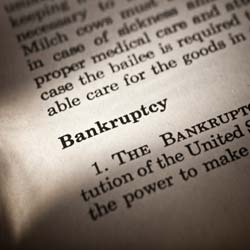 There are many issues involved in deciding whether to file under chapter 7 or chapter 13. Most people file chapter 7 if they are eligible because a typical chapter 7 case lasts only a few months and eliminates most types of debt without requiring that those debts be repaid. To be eligible for chapter 7, you must show that your regular living expenses consume all or most of your monthly income, leaving little or nothing to pay creditors, and that you have not filed a chapter 7 within the past 8 years. The benefit of filing chapter 7 is obtaining the discharge of most consumer, business and medical debts, while the consequences include possible liquidation of assets and the inability to eliminate certain debts like student loans, child and spousal support, some taxes and fines.
There are many issues involved in deciding whether to file under chapter 7 or chapter 13. Most people file chapter 7 if they are eligible because a typical chapter 7 case lasts only a few months and eliminates most types of debt without requiring that those debts be repaid. To be eligible for chapter 7, you must show that your regular living expenses consume all or most of your monthly income, leaving little or nothing to pay creditors, and that you have not filed a chapter 7 within the past 8 years. The benefit of filing chapter 7 is obtaining the discharge of most consumer, business and medical debts, while the consequences include possible liquidation of assets and the inability to eliminate certain debts like student loans, child and spousal support, some taxes and fines.
Where chapter 7 is not an option because of eligibility or risk of liquidation of assets, chapter 13 can be a good alternative. Chapter 13 is a three to five year reorganization plan that allows you to propose a plan to repay some of your debts according to your ability to pay. The plan allows you to prioritize certain debts like mortgage arrears, vehicle loans, back taxes and support obligations while reducing or even completely eliminating other debts like credit accounts and medical debt.
Determining eligibility for chapter 7 and predicting the consequences of filing is complex due to recent amendments to the bankruptcy code, and you should always consult with an attorney to ensure the best results. Chapter 13 is even more complicated and requires an experienced attorney who is familiar with local rules and procedures of chapter 13 in your area.
